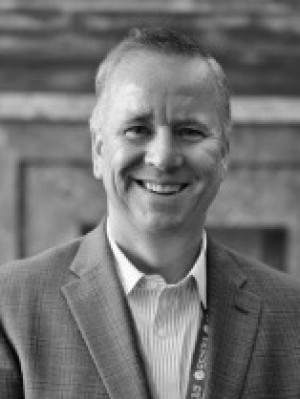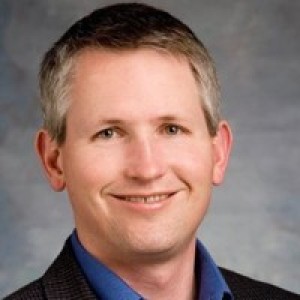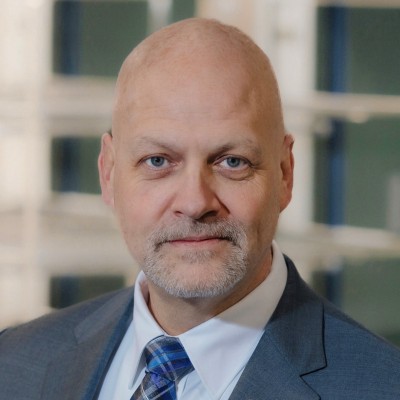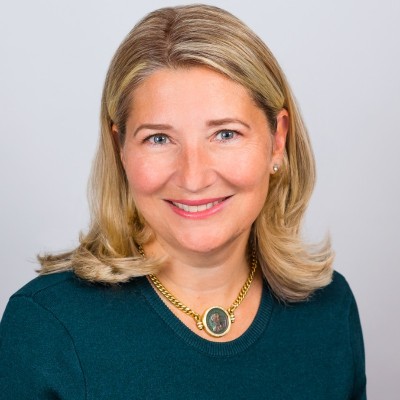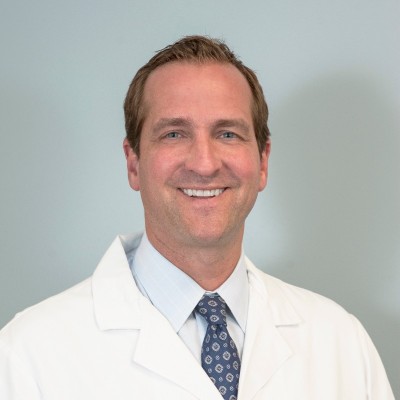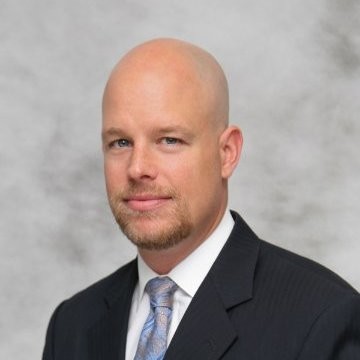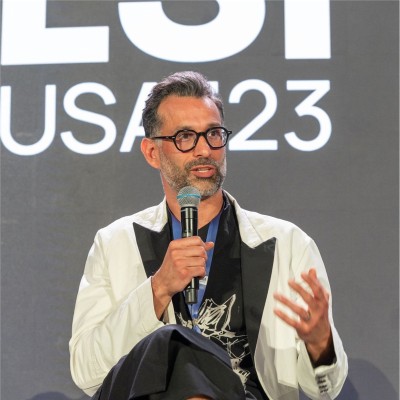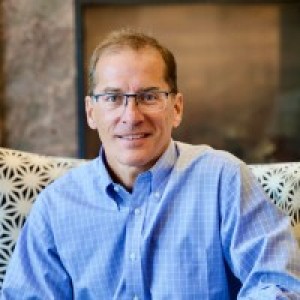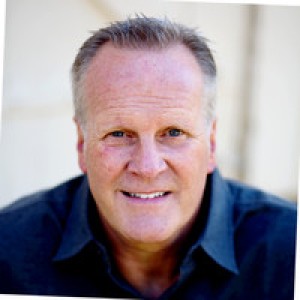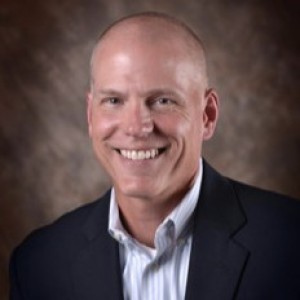cultivate(MD): From the Kernel of an Idea to Harvesting an Exit | LSI USA '24
Sean Churchill 0:04
Welcome, I appreciate everybody coming today. I'll just start off by introducing myself. I'm Sean Churchill. I'm the managing director of cultivate MD capital funds. I'm an orthopedic surgeon as shoulder, I had a shoulder reconstruction practice for 21 years outside Milwaukee, around 2017. My partners and I formed cultivate MD capital funds. As a venture capital fund on early stage medical, we've had a total of four funds at this point. And due to the success and and and my thrill of this, about two and a half years ago, I decided to retire from my orthopedic practice and move back home to Colorado. And so we do this, I do this full time now and, and I love every minute of it. I've got two partners up here, I'd like to introduce you, these are managing partners of cultivate funds. They're heavily integrated into our largest portfolio company, Shoulder Innovations. Rob, Rob, ah, we'll get to in a minute as the CEO of Shoulder Innovations, but first I'd like to introduce Dave blue, and Matt Ahearn. Dave blue is the chief experience officer, Customer Experience Officer for Shoulder Innovations. And Matt is the CEO for Shoulder Innovations.
David Blue 1:08
Well, good morning. It's great to be here. As Scott said, we actually had planned to talk about this story, because this really says a lot about Scott and the LSI conference. I mean, it's very real. But four years ago, we were all here. I mean, Matt and I were presenting, and we each had four and a half minutes, totally nine minutes for the fast pitch, right that you see here that happens. And it's sometimes you come into those like, Ah, it's just not enough time, we don't have enough time talking about what we really want to talk about. But we get done with this pitch. And you remember this really well. And we walk off the stage into what Scott just mentioned, there's a distinguished gentleman waiting for us at the end of the steps. And you get this finger that's doing this. And it's like, fortunately not doing something else with his finger, he was basically encouraging us to come. And later we learned this is Jonathan rook. And when Jonathan Britt summons you to come to one of the one on one rooms to be able to meet. That meeting went so amazingly well, that was the beginning of our journey to $22 million. That was closed, shortly after that, that came from this conference that came from this network. So sometimes when you come here, and you think, Oh, my gosh, it's time it's money, this a powerful networker, and you got to be able to take advantage of that. And you're gonna get to experience what has come from us through this. And all of these are LSI alumni as well. I mean, it's kind of an amazing story, when Scott reached out and said, We want you to come and be a part of this panel, we want to show off this talent is what the whole purpose of this is. So anyway, Matt. So I, we do do some heavy lifting in our organizations, but I carry this Chief Customer Experience Officer role that's really engaged in Shoulder Innovations, it's one of our most mature companies, it's doing incredibly well. So we fast forward four years, it's like a rocket ship. And that's not to brag, that's just to be encouraged to some of you that are coming for your first time, that there's a lot of excitement that can come from this conference.
Matthew Ahearn 3:21
Yeah, and I'll just, you know, I say, this reminds me of, you know, flashbacks to, you know, 2020 of practicing that nine minute speech 700 times, you know, and coming in at 902. And doing it again, so the, the clock that we see here facing us is a little bit stressful, but, you know, the, you know, the story that they've shared and robble share, you know, a tremendous amount more of, you know, 2020, John route us Venture Partners leading around, it's the basis for the momentum that's being built today. And, you know, just the tremendous growth and momentum and the areas that, you know, just we think about Shoulder Innovations 2022, where it is here in 2024. So, you know, there's, you know, as we talk today, you'll see the momentum of the portfolio. And that, you know, we wish and we hope and we're here to support the portfolio to see the types of momentum that Shoulder Innovations is experiencing today. So, with that, I'll turn it back over to Sean.
Sean Churchill 4:12
Thank you, Matt. So, let's just run through the panel here real quick. We told each each of our portfolio companies to come up and present ourselves there's three who couldn't be here with a stable was because the station wouldn't fit us. But we'll start with Rob balls CEO of Shoulder Innovations. Hi,
Robert Ball 4:27
Rob ball CEO Shoulder Innovations. Thanks for taking the time today. Of course, I presented yesterday we Shoulder Innovations is a later stage of venture backed medical device company with a focus on pureplay shoulder arthroplasty company. Our team has been working on shoulder arthroplasty for a couple of decades now. So we, you know, perhaps threading the needle on the perfect shoulder implant. Despite some people on the stage that may disagree but anyway, we've as I said we raise a Series C in 2020. coming out of this meeting, we've just raised a series D $42 million led by Gilda healthcare about this time last year, and were able to raise some additional $45 million in debt last year. So we've been able to layer in quite a bit of capital. We've grown a ton. I think when we were first here we were I think we're probably still in the hundreds of 1000s of revenue. We'll run about $35 million this year in revenue. And so we're in a lot different spot than we were four years ago. And it's been great to great to see that that progress. So thanks. Thanks for attending today. Excellent. Thank
Sean Churchill 5:33
you for that, Rob. And now why don't we just moving to the left here, Nathan estroux, the CEO of Genesis Software Innovations. Hi,
Nathan Estruth 5:42
I'm Nathan Estruth. I'm chairman of the Cultivate MD funds advisory board. And I'm here, as Sean said, As chairman of one of our company's Genesis Software Innovations, doing business as per voyance provides.com. In 45 seconds or less. What is provides up to we take healthcare images of many kinds, and transform them with surgeon informed AI into highly usable, really superior 3d gamified imaging for healthcare professionals. And we do that via surgical planning software. We also do it via scanning 3d scanning from smartphones. And we can also embed those kinds of images and that transformation into virtual clinic platforms. And last but not least, we were the first to have software approved through FDA in the MSK category that FDA created on AI ml. So we're very proud of that. And we'll talk more about that in a minute.
Sean Churchill 6:54
Yeah, excellent. Thank you for that Nathan. To Nathan's left, your right is Julius heel, the CEO of spdx.
Julius Heil 7:02
Yes, Julius Heil CEO of spdx. We are a sterile processing business that processes all medical instruments specializing in orthopedic trays across an entire market. We're completely agnostic. And we actually create value within the marketplace rather than shift value from player to player. The interesting thing about sterilization is it becomes a huge constraint for the ASC markets. And also as a backup for the hospital. When sterilizers go down, capacity is lost, and patients don't get treated. What sterile processing Express does is ultimately, we do provide sterile storage, which increases asset utilization for the joint manufacturers and the implant manufacturers. And we provide sterilization capacity, pickup logistics and Information Services for the ASC is to grow revenue. So basically, as the healthcare ecosystem grows, without the network infrastructure that we provide, it severely constrains that. So we remove that constraint from the markets, we choose to enter. Thank you.
Sean Churchill 8:14
Excellent, thank you for the Choice. And to the left, Karen Huntzberger, the CEO of spin tech MRI.
Karen Holzberger 8:20
Hi, everybody. I'm Karen Holzberger. Again, thank you for having me. And all of us here. Our software platform called stage is a software platform that gives time back to the health systems by reducing the scan time. So one of the big issues today in health system that they're facing our backlogs, backlogs and MRI, we create time, which creates revenue streams, without compromising the image clarity for the radiologist, we really solve that trade off that the health systems are seeing today. And so it's really exciting for us with one of our partnerships with Yale New Haven around clinical collaboration to really prove out the operational efficiencies that we provide in their current fleet of magnets, as well as some of the work that we're doing with some of the OEMs around their AI strategies, where we really fit in to augment their AI strategies. So thank you again.
Sean Churchill 9:13
Yeah. Thank you, Karen. And to Karen's left is a fellow physician, Dr. Michael Gardner, the CEO of insight.
Michael Gardner 9:21
Thanks, Sean. So Mike Gardner, co founder and CEO of insight medical, an orthopedic surgeon at Stanford University. And first got to know the Cultivate MD team about six years ago, actually, as an investor in one of the early funds. And then a year later, about five years ago, my co founder and I identified some really significant problems in treating and diagnosing scoliosis. A major one is accuracy of diagnosis, as well as access so we set off to develop some software that could very accurately and remote The using 3d scanning and kind of AI enabled assessed scoliosis. And so we've kind of come through FDA clearance and we're using that to kind of power additional services that scoliosis patients need under the National scoliosis clinic brand.
Sean Churchill 10:20
Yeah, thank you, Mike. And Andy, Ayat CEO of happy spine.
Andrew Lott 10:24
Yeah, thank you. Yeah, here as a CEO HAPPE spine. HAPPE is a medical device early stage company focused on orthopedic implants. We want to improve clinical outcomes with our proprietary biomaterial platform. The name says it all happy stands for hydroxy apatite porous peak, which we believe is a significant leap forward in the ability of the material to improve fusion rates and lower complications, particularly in spinal cases. It is a platform technology, and we have multiple products that we believe can benefit from from this technology. Myself, I'm been in medical device for 25 plus years, I was a co founder at Globus medical, and ran product development for them. And I'm happy to have joined the the team at happy in the last two years. Yeah, and happy, happy.
Sean Churchill 11:22
Thank you for that, Andy. And then Berk Tas, the CEO of Centese AR. Thank
Berk Tas 11:28
you, Sean. It's so nice to be with these esteemed panelists here. Little intimidating the brain power. Following happy I wish our name was something a little more like smiley guide or something like that. But we're gonna have to go with Centese Er, we developed world's first holographic guidance system for cardiac ablation surgeries. So the company's Foundation, about six, seven years ago came from practicing electrophysiologist, who would perform these procedures on kids is a pediatric electrophysiologist. And the need for her was so obvious and immediate, that she had no Choice but to start a company. And that's how we began. Now it's in clinical use, we've actually gotten FDA approval for this product is provided through augmented reality glasses. And it allows the the physicians the operating physicians to see the heart they're operating in. It's a closed chest surgery minimally invasive. They're able to see the heart and true 3d hologram in real time with the catheters and other tools inside, all in real time. And they're able to manipulate this image that they're seeing in real time through a hands free control mechanism. And they do it all through glasses. This is where everybody goes. Ah thank you anyway, look forward to the rest of the panel thing.
Sean Churchill 13:00
Yeah, thank you, Berg. I will say we have three portfolio companies who are also LSI alumni who couldn't be here. No stranger to the stage is John Murphy, the CEO of a Virtual Incision Corporation. For those of you who have not followed Virtual Incision, they have miniaturized the robotic world from a large two ton mainframe computer module that has to sit in a single operating room to a two pound intraabdominal robot that can be portable to every operating room. So every operating room becomes a robotic room. John has been you know, had tremendous success here. His company is FDA approved now. And for those of you who followed the space program, approximately a month ago, they sent the robot up to the space station and actually did a simulated remote operation up on the Space Station with our surgeons down here on Earth. It was quite fascinating. But John has been a tremendous company to have an art portfolio and we're happy to partner with him over the past six or eight years. Also nano con. Ben Holmes is the CEO of nano con, nano con is directing their efforts at solving the focal cartilaginous defects in the knee. These focal defects often times go on to young individuals to develop arthritic changes. They have a a novel implant that actually works as a scaffold for cartilaginous in growth. We partner with Ben to help develop the deployment system as well as work as as an investor and and on the board for that Fernando Khan. Ben's been here unfortunately couldn't make it this year, but they have their first Inhumans planned for later this year, possibly Q As early as q3, but probably in q4. So they are making tremendous headway moving forward with this. And last is Stratos. It's a pulmonary company. The CEO is Nick del Monaco. Nick's been up on the stage several times as well. And they have a pulmonary monitoring system that's about half as thick as a hockey puck and is adherent to a person's chest wall. So remotely the physicians can monitor breath sounds cough, wheeze and they can do this and next Really threaded the needle on his device and found tremendous success in the pharmacological industry, where these pharmacological companies are trying to get new products on the market include to the FDA, so they do huge patient trials. And these patients oftentimes have to blow into a wheeze monitor and all these things that requires effort, and the patients get tired of this and they lose effort. But this is a total passive system that is here into their chest wall. So the patients enrolled in the study don't have to really do anything to participate other than where it's so Nick could not be with us today as well. Lastly, it's somewhat bittersweet. Our exit last year was embody with Jeff Conroy Jeff Conroy has commanded the stage several years in a row. His company was developing a collagen scaffold to work on soft tissue augmentation and repairs. We coupled with them, Rob ball was on the board there. We coupled with them to help develop a deployment system, they had a wonderful exit two of our funds invested in Ambati, they had a wonderful exit to Zimmer Biomet last year for 275 million. So although we wish he was here, we're glad he's not here, because it was a great exit for all of us. So at that, I'll turn it over to Matt and, Dan. Thanks.
David Blue 16:14
Well, we're going to ask some questions of the panel and get some interaction going with them as well. But I want to pick up with you, Nathan, what, from your introduction, you were talking about just our network and you know, how we might work with, you know, various areas with proliance? Can you share some examples of that, and how we cross pollinate between the companies and how there might be an opportunity there?
Nathan Estruth 16:37
Sure, I just say, the best way to talk about the Cultivate difference in terms of the ecosystem that they have for me is to contrast it with when I was at before I was with cultivate, I was at Procter and Gamble. And for the last decade of my career there, I lead their global new business development group. And so I spent a fair amount of time in the VC and PE world representing, you know, a large company. And the first larger meeting that I went to with my wife at cultivate as investors, she took me aside afterwards and said, Why do you spend your time with anyone else, but those guys, and honestly, it's a foundation of trust and humility, that I find not only within the Cultivate LP community and the GPS, but across the portfolio of companies. And so it provides, we consider it a part of our mission to make sure that we're bringing the best tools that we can to other companies. And I think, you know, Mike and Rob are two greats exhibit great examples of that insight and Shoulder Innovations respectively. And there's, there's a level of trust, where they make us better, because they're open book, and we can then delight them more right as our customers, and it allows us to delight customers that aren't within the Cultivate universe as well. So I don't know, Mike, I'll maybe toss it to you. And then back to Rob is how, as you know, pro voyance helped you as you've thought about your insight journey, and the broader ecosystem.
Michael Gardner 18:05
Yeah, thanks. Great. So, you know, first investor in US was cultivate, so we were really starting from scratch. And we needed a lot of resources that go into a full fledgling startup. But first and foremost, we need to figure out as a technology company that we are aspiring to be how we're going to do that. And further, as I've learned, kind of along the way, and later, an FDA cleared software device is it's hard to do, it's hard to build a team internally that knows how to do that. And so, not really realizing going into it, how critical it would be for us to have a software team like pro voyance. Now GSI, at the time, who had expertise, and a track record with success of doing that was really critical to where we are, are today. So we had kind of a ready made team, again, with experience. And we had a vision of what we wanted it to look like. But the process of bringing that through the FDA is complex, and I had no idea what it was going to take. But it made us kind of kind of launch into that next level of kind of now an FDA cleared technology company.
Robert Ball 19:26
And I'll just characterize you know, I'm on the board of with my kid inside. And I've learned a lot watching Mike pivot the business a number of times as you navigate that, that FDA process and indeed, as CEO Shoulder Innovations observing various ways he creates value in a in a completely separate business. But I've learned a lot in terms of considering how can Shoulder Innovations create more value by watching you know, and so I do that. So it's been a neat, it's been a neat experience. Yeah,
Matthew Ahearn 19:56
so this next question would be for Julius, Karen and Andy So when you think about the Cultivate MD limited partners, we've got about 150 limited partners across our four funds, about 60% of those are doctors. And so we have this incredible built in network of knowledge and experience. So a question for Julius Karen. And Andy would be, you know, kind of how have you leveraged, you know, individuals, LPs, in order to help resolve a problem, grow the business, make a connection. And then also, when you consider the Advisory Board, led by Nathan, how you've leveraged them as in as well in that same context. So Julius, we'll start with you.
Julius Heil 20:32
Yeah, under the premise that it's impossible for any one of us to be as smart as all of us. I think that's the culture that you experience up here. This group is incredibly open. And as we look to grow our business, whether it's building a network, whether it's looking and finding someone that's faced a particular challenge, at the size that you're at, because solving that problem, if you're much larger, could be simpler, but much more expensive. This group and having access to everyone standing up here and a host of others, across the board, I have yet to find anything that one of us hasn't faced. And so that stops a lot of the trials and tribulations, the landing and you know the pitfalls and falling in the holes. You just call you talk to him, and everybody is so open with the information. And they'll tell you everything that they know that I really enjoy being a part of this family.
Karen Holzberger 21:31
That's wonderful, I think to augment to that is the fund and especially with the partnership that I have with Matt is that allows you to play to your strengths. So I'm a commercial CEO, I came in at series A so not a founder, not a co founder, but coming in to take from minimal viable product to minimal viable traction. You know, I was in the corporate world working for nuance that was sold to Microsoft for $19 billion. And so I have a very different experience and a very different set of strengths. But to balance that off in a trusted transparent partnership with somebody like Matt, and the Cultivate family, whether it's them as board members, or within the LPS themselves to be able to leverage that, because that's the best of what you want at a stage of company that, specifically that we're at is how do you take one plus one, not just equal three, but get a five as fast as you can. And I think that's what's really important is that they let you work to your strengths, and then fill in where you need help, because they've just seen the cycles of it, you can see here, the difference. We're gonna use my product names, stages of the company, but they can help like, kind of see things before you see. And I think that's just really important.
Andrew Lott 22:45
Yeah, that's great. coming in late to the group at happy, I got to see how much the cultivate and the Genesis team provided resources to take what was essentially a science project and create an actual FDA cleared commercializable product, both from a finance perspective, from product development, a quality system. Michelle ball has done great work, kidding us through our audits and being being ISO certified. Even one of the LPS has has a manufacturing facility that we utilize. So without really the partnership with cultivate, I'm not sure we're happy would be and it's just been a tremendous partnership of I can tell.
Matthew Ahearn 23:36
Great, yeah, thank you. So another question. And this one's for Rob is, you know, in the early days, rewind back to, you know, 2017 2018 timeframe, cultivate funds was the largest shareholder in Shoulder Innovations. And there's been a tremendous amount of growth, you know, as we, as Rob and Dave described 2020 forward so that, you know, the the investment, the board has shifted, you know, away from a cultivate domination, for lack of better terms, you know, now to, you know, three large venture capital firms and observers, just a much different set. Rob talked about that transition and how cultivators continue to remain involved. But, you know, just also, you know, the, the trajectory that the business is on and how that's changed.
Robert Ball 24:17
I mean, you definitely, you cannot sell your way out of a cash flow problem, right. So, you do find yourself that, you know, growing businesses just become thirstier and thirstier for cash and you know, that we find it I found ourselves you know, cultivate being a relatively small fund found ourselves in a circumstance where cultivate could no longer you know, kind of continue to fund that growth. So, you know, obviously, we saw capital and other other sources but, you know, the the advantage with cultivate continuing to be very engaged is that, you know, that level of operational engagement of cultivate provides them with really very, very unique practical access to what's actually happening on the ground in the business, which provides a dramatically different risk reward profile, when you know everything about the business, it's pretty easy to know when and when not to write a check if that makes sense. And so cultivate was able to lean, in fact, like many of you is, we experienced, you know, kind of dramatic thirst for capital contrasted with a paucity of capital available in the market over the past call it three years, cultivate was really able to lean in harder, even even much harder than some of the larger investors on the cap table. Because of that, that granular understanding of the business. So it does provide a really unique circumstance to support those really kind of difficult circumstances sometimes.
David Blue 25:36
Thank you. That's good. So Burke, question for you on you think about our relationship and how it started and think about maybe the journey it went through, I would love for you to share with this audience how what that pathway was, because it was very meaningful to us, yes,
Berk Tas 25:53
and meaningful to us as well. So I got a chance to meet Sean first over email introduction from one of our advisors. And at the time, we were looking at a written deal already, we had a lead, and we had lot the majority of the funds already secured, not in the bank, but committed. And as they were evaluating, and about to come on, it felt like there was good momentum, we had a parting of ways with our lead. And I called Shawn, a call that that I never ever wanted to make. And I don't think it'll get easier, probably. But I said, Look, here's the situation. There's some games being played, and we don't want to be a part of this anymore. I'm gonna walk away. I still interested. And it's hard to, to communicate that conversation here. Because when you've been at this for as long as we had, and there's success, and customers want it, you're dealing with a situation that is out of your control. And Shawn, without a doubt, he goes, we got you. I mean, that's all he had to say. Right? And you fast forward to where we are now. He really do have us, right that he didn't just, they didn't just write a check. But Shawn has been with us in our animal labs, and he's a physician. He thinks he was just doing an amazing job in the animal and turns out Emma was dead. So you know, he's, he's also getting his his little black eyes here and there too. But, you know, I think the, from our perspective, that the clarity, and the concise and unwavering support that we received from from cultivates has been game changing for us, right? It you go from looking at one scenario to a completely different, you know, full flip scenario. And then on top of that, you're heard from these guys, they're all operators, you got a physician and an operator, a very different capital source, when you're in our, in our seat, when I need something. I'm like, I wonder how David has done this before? I can do that. Right? Like, hey, Shawn, can you ask Rob how he would deal with something like this? He's running a whatever, you know, $35 million revenue company, we don't. So obviously, he's been through some stuff. So I think, from my view, the partnership is beyond the capital. And it's one that's built on trust more than anything else. And in the end, we're all developing amazing technologies, but we're all people, right. And I have a group of people I'm responsible for, and they got families. So that side is not lost in this relationship. And that's what I appreciate the most.
Sean Churchill 29:25
I'm not gonna let that go on. My defense might advance that pig had been on the table for eight hours. And, and when Bert, when I'll tell you when Burke holds a lab, Burke holds a lab. He had, I think three or four strategics there that day three or four physicians. These are top level electrophysiologist from around the country who came to that lab, and everybody who's in there. I'm taking my notes diligently and sit in the background. And when I got done, you know, I'm an orthopedic surgeon I'm doing I've been doing arthroscopy for 30 years. I mean, how hard can this be? It's a video game. I work in this week. So I got on there and I've been I was struggling a bit at the beginning and struggle a bit of beginning. And then it became very, very easy. And I was so proud of myself how well I could direct it, how I could do this, I could do that I could do everything they asked me to. And I got up and Burke understood that delicate, you know, ego, the ego of a surgeon, and he said, Well, Shawn, you, you know, the pig died like 10 minutes ago. I didn't, but he handled that really well.
Berk Tas 30:22
That was a good time. It was a good lab.
Matthew Ahearn 30:25
So one of the things that Karen had hit on in our previous answer, and this will go to Julius and to Andy again, as well as Karen and then the alternative side for Mike gardener is when you when you join an early stage business coming out of a larger business, you know, so Karen talked about leading, you know, $200 million business and nuance that got acquired, you know, by Microsoft, that stresses the strains, the challenges, what you wake up on Monday mornings, and you think about and what you wake up on Saturday evenings at three o'clock in the morning, and what you think about are very different than your previous role. So, you know, talk about your experiences, the the the three of you, and then might talk about it from your experience as a surgeon entering in entrepreneurship, and as a CEO, the stresses, the strains, the challenges and how you've been able to lean on the network and cultivate to kind of navigate navigate through some of those times. So I want to start with Andy. Sure.
Andrew Lott 31:15
Yeah, it's it. There's pros and cons, right, coming from a from a big company, where you have a marketing department and a travel department and, you know, there's there's resources that are in abundance, that you can take advantage of coming to more of a startup where you know, you're wearing lots of hats, and you're and you're have a lot of responsibility. And it's nice to have a group that you can go to and say, Hey, I need help with this. Right? Here's a question. You know, guys, have you faced this before. And so it's, it's nice to have that kind of rope, if you will, that you can lean on. And it's not like you're just out there on your own. We have a small team trying to be capital efficient. So it's nice to have, you know, some some free advice and some free input, so to speak, and it's been been great.
Michael Gardner 32:07
Mike, you want to go just from a certain perspective? Sure. Yeah. Thanks. So coming from the exact opposite direction. Orthopedic trauma surgeon. So I had kind of gotten used to what I thought was what I thought was fast pace environment, which was nothing compared to starting a company. But I think had a pretty good sense of a clinical problem. had a vision for a solution that we thought would work and was passionate to really go all in to do this. But but that was it. And, and come to find out there's real a lot more that goes into starting a company at the foundation of a true business. And so, you know, things changing every day, but you know, little things, I look back and remember, like, Rob, we're about to hire our first person, like, how do we do that, oh, we got an HR team for you. Here we go. Let's set that up. We need we're ready to go the FDA, we need an FDA advisor. Here you go. Yeah, it's a little things that then the next day, something else happened. So kind of lose sight of that. But there's been so many things along the way that have just been instrumental in in setting it up. And then as far as you know, even harder to quantify, and remember the direct value from but all the people introductions along the way, that you don't see the value when it happens. But it opens three doors and those things open three doors. And so it's really been an unbelievable kind of evolution. Thinking back to when we kind of started to where things are now.
Karen Holzberger 33:40
That's great. That's a really to kind of add on to that answer is really mascot a great analogy about bowling, I don't pull but you got just knock one pin down and have the rest of the pins come down. I'm not gonna get the analogy correct. But really focusing on that first pin that second pin. I think in corporate world, you're thinking about your multi year plan and what three years look like but in when you're in a series, a startup and getting through minimal viable traction, what are the two critical things are the one critical thing in this case, probably the bowling ball and the pin is to get it down the alley of those critical things because you can get lost between I think the trees in the forest because of running large, global businesses about like, what are the first three things you have to get done? And from those three things, what are the next six things that you have to get done, and really building in that doubling that you have to continue to do? And that's been really helpful with just that reset, again, of going back of how do you play your strengths? How do you you know, your strengths, the you know, the partners know their strengths, and how do you kind of marry that together and I think that's really important. That's just been a really good lesson for me. Throughout this journey
David Blue 35:03
Well, I tell you that the piece I love about this group is the humility. I mean, we have a culture here cultivate, that we hope is that same kind of we're eager to learn. We don't have all the answers, but together, we're stronger than we are individually. And I think you're seeing that. And that's where we try to cross pollinate between organizations. But Shawn, maybe you can share an example of what I'm thinking of embody the change in the trajectory when we came in and kind of worked with Jeff early on, maybe you can share that story, because I think that's just another amazing situation that happened. Yeah,
Sean Churchill 35:39
sure. So it's 2018. And I'm practicing orthopedic surgeon, I get a call. I think I was still in the office that day. And it Matt and Dave had just left a pitch session in Chicago. And they said, Hey, Sean, you know, we got this company. It's got a really strong CEO, Jeff Conroy, they make some kind of I don't know, tissue type thing that's supposed to help tendon repair. Would you look at it? And I told him, I told him at that point, I said, Listen, you know, as an orthopedic surgeon, I've been down this road, too many times these things, you know, they cause a biologic response with the host. They don't work that well. They're often rejected. I'll look at a bit, don't, don't hold your breath. And so I got the information. I looked at it. And I liked the studies that have been done. I liked the the IP stuff. I pulled Robin and Robin, I really dug into the IP, and it looked really good look very, very promising. And so I told the guys, I said, someone at some point is going to split the atom here. And this may be it because I really liked this stuff. So so let's let's do this. Let's go down this road. So we met with Jeff Conroy. And we're talking to Jeff, and we're speaking with him. And Jeff is just the master of as a CEO. And so we were questioning, we said, what's the plan? And he says, Well, what we're going to do is we're going to go after the Achilles tendon market. And we say, Well, Jeff, why? Why the Achilles tendon? And he said, Well, it's this tendon right here down nearby your ankle below that, no, no, I'm good with where the Achilles is out. I understand that. And I'm good with that. And thank you. But why that because there's 30 times more rotator cuff repairs, then there are Achilles repairs. And that's a real number in the literature. What Why are you going after the Achilles? And he says, Well, it's an open procedure, and the shoulder is arthroscopic procedure, we have no idea, no way to get the device into the shoulder. And so our group partner and we said, Well, hey, we have some partnerships that can help you out with this, to help develop a deployment system with that, and they could do the job for you. So we felt much more comfortable investing as cultivate, knowing that this company was going to be developing this deployment system, Jeff was super happy Rob got on the board. It was a wonderful relationship. And in the end, we had, as I said, to have our funds invested for different times at various valuations and had a great return. But that to cap the story off, I don't know if I've even told you guys this, but to cap this story off. But last summer, I was an orthopedic meeting. And one of the presidents of a very prominent large orthopedic company, came to me and said, Hey, Dr. Churchill, congratulations on everybody. And I saw yeah, thanks a lot. And he said, Man, we really wanted that Zimmer just outbid us. But we really, really wanted that. And I said, Well, that's great. So I'm just curious, you know, the original thought was going after the Achilles market, and then eventually getting to the shoulder. But if the shoulder thing hadn't been involved, it went for 275. What do you think it would have gone for? Yeah, maybe 70. So that was the value. And that was when I really just my eyes opened up. I said, 70. He said, Yeah, the shoulder markets where it's at, and I think Kelly's market, we maybe would have gone to 70 rather than 275. So that was a big moment.
David Blue 38:33
That's good. Thanks for sharing that. Well, if nothing else, we wanted to be able to share the power of a network, the network of LSI, the network of what's happening between our portfolio companies at cultivate, feel free to reach out grab any of these CEOs get some time with them. They all have opportunities to connect with you, just like Matt and I did with Jonathan wrote, but this is really a pleasure. Thank you for giving us this opportunity. And we really appreciate your time.



